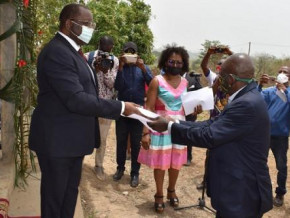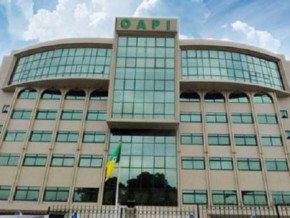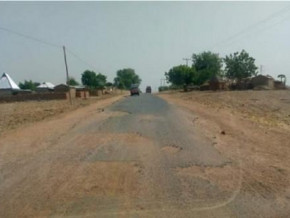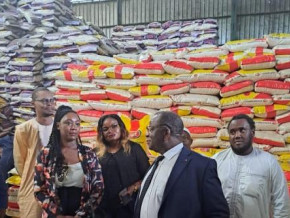
Olivier Dicoh: “Camtel’s main mission isn’t seeking financial performance”
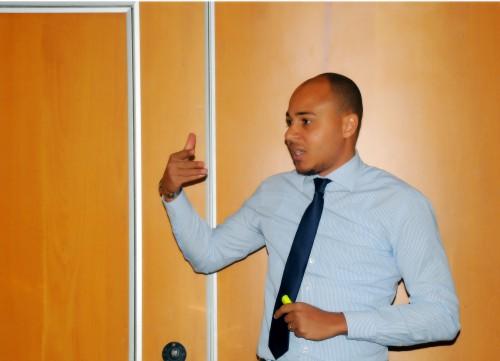
(Business in Cameroon) - Mission Director at Bloomfield Investment, Olivier Dicoh discusses the relevance of the financial rating given to Cameroon Telecommunications (Camtel), as well as its implications.
Business in Cameroon: In light of the less than stellar state of its cash-flow, its high debt and a Cameroon mobile market in which two leaders (Orange and MTN) have a major head start, is the BBB rating Camtel received from Bloomfield likely to reassure investors whom the company hoped to attract?
Olivier Dicoh: Camtel’s short term and long term ratings are investment grades in the moderate risk category and should reassure investors. The long term rating establishes Camtel’s fundamentals while the short term rating looks at its cash-flow within a period of less than a year. Of course, these ratings take into account the company’s cash-flow as well as its debt.
It’s important to understand that Camtel’s main mission is to provide universal service (easing everyone’s access to information and communication technologies), not to seek financial performance as its activities fall within the framework of the Strategic Document for Growth and Jobs (DSCE).
Ensuring the availability of universal service requires considerable investment (thus the high debt) which won’t necessarily be influenced by the question of profitability (laying fibre optics in unprofitable areas where private companies would not invest). This effort is being pushed by the State as a part of its development vision for the telecom sector.
Therefore, the profitability of Camtel’s investments won’t be immediate. Camtel still has steady revenue and financial flexibility which counts on its importance to the State and this gives it access to liquidity.
With regards to mobile services, they will be provided by Camtel Mobile Telecommunications (a subsidiary of Camtel). This will not significantly impact, at least for now, Camtel’s results if it decides to consolidate.
BIC: Among the factors that you found to be negative in Camtel’s rating, there is legal uncertainty since the company is listed for privatisation. Why would this be a negative when privatisation generally drives performance?
OD: We considered this to be a negative factor because the uncertainty hovering over Camtel needs to be lifted if the company is to raise funds on the financial market. Potential bond subscribers need to know Camtel’s legal standing.
One mustn’t forget that the corporate status the State grants Camtel gives it responsibilities, including the implementation of the government’s vision within the telecom sector, but it also gives it a certain “cushion” since it as the government’s support in the event of financial difficulty.
BIC: Can we expect to see Camtel enter the stock market (the DSX in particular), instead of privatisation as some experts hope?
OD: We think Camtel’s general management is best placed to answer that question and say whether or not talks are underway. But that said, we think that would be a good thing for the development of Cameroon’s financial market.
BIC: In your opinion, if Camtel were to enter the financial market, as seems likely, what would be the more prudent approach to take? A bond loan or the public sale of shares?
OD: From a balance sheet point of view, the opening up of capital to private investors would look better, financially speaking, but could lead Camtel to focus on performance to the detriment of universal service provision. With a bond loan, the State would maintain control of Camtel and could better pursue its goals.
BIC: Most of the rating’s positive elements are contextual – the telecom environment (the sector’s potential, the government’s confidence), which are outlying factors relative to Camtel’s performance as an entity (a lot of debt, dried up cash-flow, and results that are in a free-fall). Can these environmental considerations surrounding Camtel really counter the company’s actual performance?
OD: The assessment of Camtel’s credit isn’t based solely on the state of its finances, but also its strategic value to the State in its goals to develop the sector. Therefore, a company that doesn’t have extraordinary financial results or “glowing financials” can still have good credit which can rely on its access to alternate sources of liquidity (financial flexibility) and the company’s strategic value to the shareholder or even the country.
From 2009 to 2013, Camtel’s performance, which we believe needs to be maintained and consolidated, improved. The “free-fall” apparent in 2013’s results is due to the increase in amortisation because of the extensive investment that had been undertaken, and a revaluation of immobilisation.
One mustn’t lose sight of the fact that Camtel must carry out its universal service mission (to facilitate ICT access for all Cameroonian people). This necessitates major investment unmotivated by immediate profitability. The company’s performance can also be assessed by observing the growth in value added and the gross operating surplus in these two years.
Mags frontpage
- Most read 7 days
- shared 1 month
- read 1 month



